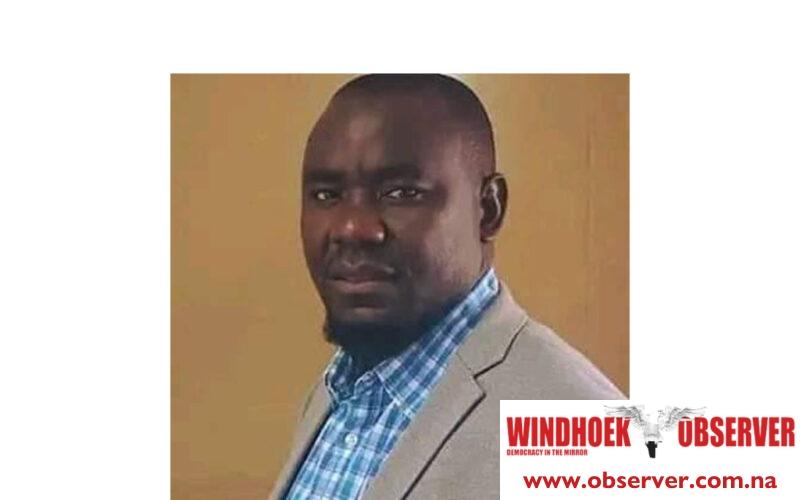Lazarus Kwedhi
Many still vividly remember the funeral of Her Majesty, the late Queen Elizabeth II, where African presidents were transported in buses while other world leaders, particularly from the USA and Europe, travelled in the comfort of their presidential fleets. These arrangements angered many Africans back home, who felt their leaders were disrespected and made to appear like schoolchildren on a tour bus. The privacy and security of African leaders seemed far less important than those of their Western counterparts. If that happened in public, one wonders what treatment they received behind closed doors. Were African presidents also placed in shared accommodations, while others enjoyed private lodging or the option to arrive at their own convenience for the funeral?
This situation brings to mind a similar experience in Namibia, where traditional leaders are transported by bus to annual meetings of traditional authorities, while politicians—such as the president, ministers, governors, councillors, mayors, and senior officials—arrive in the comfort of VIP fleets.
Though different in context, both scenarios share the same underlying theme: a hierarchy of superiority and subordination. In global politics, American and European leaders are often regarded as superior to African leaders, a mindset rooted in colonial history. In Namibia, a similar dynamic plays out between political leaders and traditional leaders. Yet both derive their authority from the Namibian Constitution, and both are recognised as part of state governance. Their roles should not be interpreted through a lens of superiority or inferiority, but rather through mutual respect, with each fulfilling its duties in the public interest. The state, under Article 18 of the Constitution, has a responsibility to ensure fairness, accountability, and balance in this relationship.
Political superiority over traditional leadership
Disrespect toward traditional leadership is not new. Colonial powers deliberately sought to undermine monarchs and kingdoms in Namibia, aiming to dismantle indigenous governance systems and impose Western legal and cultural norms. Many royal bloodlines were destroyed during colonial wars, particularly during the Herero and Nama genocide under German rule. In Owamboland, for example, King Iipumbu ya Tshilongo of Uukwambi was exiled, leaving his people without a king. King Martin Ashikoto of Ondonga was also removed, while King Filimon Shuumbwa was killed. King Mandume ya Ndemufayo died fighting the Portuguese, leaving Uukwanyama without leadership for years. Similar disruptions were felt across other kingdoms.
In independent Namibia, the struggle for authority continued. Political leaders often assert supremacy over traditional leadership. Former President Hage Geingob reinforced this view, repeatedly stating that Namibia is a republic and therefore has no kings or queens. His position was that titles such as Omukwanilwa, Ohamba, Ombara, Hompa, Gaob, Nkosi, and Fumu should not be equated with “king” or “queen” in English, as these are constitutional republics rather than monarchies. He cautioned against translating traditional titles into English in ways that suggest otherwise.
Yet this raises contradictions. While the term “chief” is widely used in English for traditional leaders, it is selectively accepted, while the direct translation of Omukwanilwa as “king” is rejected—even in cases where leaders have an undeniable royal bloodline. The Namibian Constitution protects cultural identity and traditional authority under Chapter 3, meaning that recognition of kings and queens is not unconstitutional. Some communities accept “chief” as a title, but others—such as Ondonga, with its long-standing kingdom—cannot be reduced to that terminology. Attempts to erase or redefine these roles reflect a liberal political agenda rather than constitutional clarity.
Unitary state vs kingdoms in Namibia
Namibia, once a colony of Britain under South African rule, is now a member of the Commonwealth. The Commonwealth acknowledges monarchies but is ultimately chaired by the British monarch. This does not mean Namibia must erase its own kings and queens. Being a republic does not prevent traditional leaders from being respected as kings and queens within their own communities. They are custodians of culture and tradition, and their leadership deserves dignity, privileges, and benefits from the state.
The republic model is a foreign political system adopted at independence, while monarchs and kingdoms are native to Namibia’s history and identity. These two forms of governance can coexist harmoniously. Respect for traditional leadership does not threaten Namibia’s republican status; rather, it enriches the nation’s cultural and political fabric.
As the proverb says, pandula lyokokulu ando nyoko ina valwa—one must honour the wisdom of past generations. Traditional leadership laid the foundation upon which modern political leadership now stands. Denying or diminishing it risks not only cultural erasure but also the weakening of Namibia’s governance as a whole.
Lazarus Kwedhi is a public policy analyst, holding a Master of Public Administration from Tsinghua University, Beijing, China.




